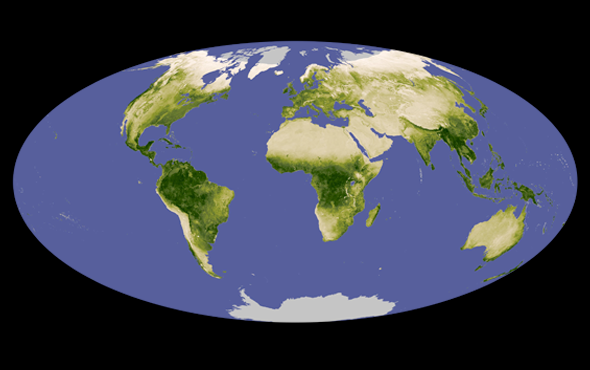MEXICO
In now flooded caves, researchers discovered the oldest known ochre mines in the Americas. Around 12,000 years ago inhabitants of the Yucatán Peninsula extracted the red pigment, possibly for use as an antiseptic and sunscreen or for symbolic purposes such as body painting.
ITALY
A massive bloom of pink algae, triggered by low snowfall and high spring and summer temperatures, could accelerate the melting of the Presena glacier by causing the ice to absorb more sunlight.
BOTSWANA
At least 350 elephants have dropped dead in the Okavango Panhandle since March, and live elephants have acted disoriented or seemed partially paralyzed. With poaching and anthrax ruled out as potential causes, investigators suspect an unknown disease.
LIBYA
A seven-million-year-old crocodile skull suggests the prehistoric animals may have traveled from Africa to the Americas. Computerized tomography of the fossil, found in Libya, revealed a slight bump in the middle of the snout—a feature of modern American crocodiles but not their African counterparts.
POLYNESIA
Through a genetic analysis of modern-day Polynesians and Indigenous people from South America's Pacific coast, scientists concluded the two groups came into contact between A.D. 1150 and 1230. Where the transoceanic encounter occurred remains unknown, but the team suspects eastern Polynesia.
UNITED ARAB EMIRATES
The successful launch of a Mars orbiter called Hope marked the first interplanetary mission conducted by an Arab nation. Carrying instruments to study the Red Planet's daily and seasonal weather, the spacecraft is set to enter Martian orbit in February 2021.


